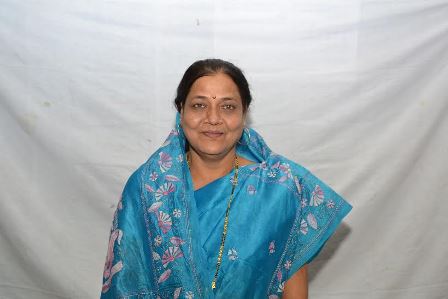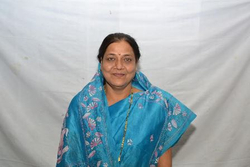Spotlight on Solapur, India – An interview with Mayor Sushila Laxman Abute

What would you describe as Solapur’s main achievements in the field of sustainability?
Being a city from an arid region, Solapur faces problems of scarcity of water, high T & D losses in water supply network, sewage treatment, river/nallah pollution and air pollution. Recently our city has initiated implementation of 3 decentralized wastewater treatment plants to prevent nallah/river pollution. City authorities are extending and upgrading the underground sewerage network for peripheral areas of the city to increase the efficiency of sewage collection. We have also started working towards minimising losses in the water supply network by preparing a report on ‘Augmentation of water supply schemes in Solapur’. Public transportation is also being promoted by Solapur Municipal Corporation to minimize air pollution and concerned health problems.
How has ICLEI South Asia’s support helped you achieve these goals?
Solapur city, having water scarcity as a high priority issue, is finding new-fangled drives and paths with ICLEI- South Asia through the Adopting integrated Urban water Management. The Adopt IUWM is providing us with different opportunities to increase our efficiency, to find loopholes in the system and identifying new solutions for the basic facilities by integrating various aspects related to water cycle. ICLEI South Asia, through remarkable national/international exposure visits are helping us to build capacities of our staff and by providing technical expertise on implementation of pilot projects are helping us to gain better opportunities and engage better with our stakeholders.
Recently, you were a part of the Europe exposure visit organised through the AdoptIUWM project. How was your experience? What takeaways have you brought home from the cities of Europe?
The exposure visit was a fantastic experience for me which provided me with ample opportunities to learn from different cities of Europe about Urban water management. These cities have also faced the same problems like my city, with different severity though. But people’s participation and willingness, commitment of city authorities and technological support are acting as strengths for them to help them fight these water related problems. After this visit, my first step will be to seek a common agreement/objective/vision between all the political parties in Solapur. I will work on minimizing non-revenue water quantity and enhancing efficiency of water supply system and ground water recharge. I will take efforts to close the water cycle loop in the city making Solapur as a model city in terms of water management. Also I will try for plantation drives at open spaces in the city, organizing vehicle free days for all the Corporation staff, schools and colleges to minimize pollution.
We hope that positive reforms in the water sector towards integrating storm water, waste water and sanitation will help us in making Solapur a perfect example of a water sustainable city in India.
